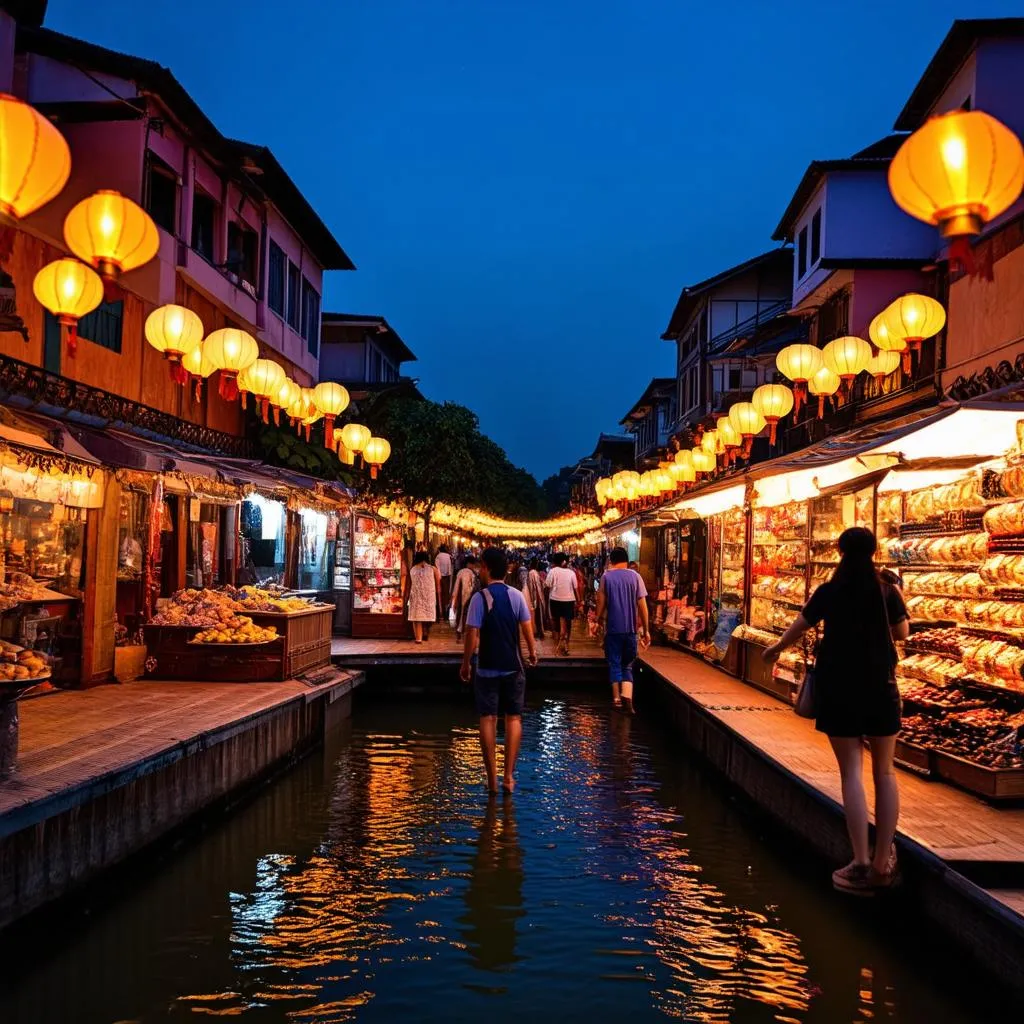Are you dreaming of vibrant cities, emerald rice paddies, and ancient temples? Vietnam has been calling travelers back with its rich culture, delicious food, and stunning landscapes. But you might be asking, “Can You Travel To Vietnam now?”. The answer is a resounding YES! Vietnam has reopened its borders and is eager to welcome visitors. This comprehensive guide will tell you everything you need to know about traveling to Vietnam in 2023.
Vietnam Travel Restrictions: What’s the Latest?
Vietnam has lifted most of its COVID-19 travel restrictions. You no longer need to quarantine upon arrival, regardless of your vaccination status. There are also no testing requirements. However, it’s always a good idea to check for the most up-to-date information on the Vietnamese Embassy website or your local Vietnamese consulate before your trip as policies can change.
Applying for Your Vietnam Visa
Many nationalities can now enter Vietnam visa-free for a limited time. For instance, if you’re a citizen of the UK, you can enjoy 45 days of visa-free travel. However, for longer stays or if you don’t qualify for the visa exemption program, you’ll need to apply for a visa.
You have two options:
1. Visa on Arrival: This is the most popular option for short-term tourists. You can apply online for an approval letter before your trip and then get your visa stamped upon arrival at Vietnam’s international airports.
2. Applying at the Embassy: This is a good choice if you want to stay longer or are planning to work or study in Vietnam.
Pro Tip: Make sure your passport is valid for at least six months beyond your intended stay in Vietnam.
Planning Your Trip: When is the Best Time to Visit Vietnam?
Vietnam has a diverse climate, so the best time to visit depends on which regions you plan to explore.
- Spring (March-April): This is a beautiful time to visit, with pleasant weather and colorful festivals.
- Summer (May-August): It’s hot and humid in most parts of the country, but it’s also the best time to visit the beaches and enjoy water sports.
- Autumn (September-October): This is a shoulder season with pleasant weather and fewer crowds. It’s a great time to visit the rice fields of northern Vietnam.
- Winter (November-February): Northern Vietnam can be chilly, but it’s a good time to experience the cultural capital, Hanoi. Southern Vietnam enjoys warm and sunny weather.
Expert Insight: “The best time to visit Vietnam for a well-rounded experience is during the shoulder seasons (spring and autumn), offering a balance of pleasant weather and manageable crowds,” says travel expert, Dr. Minh Nguyen, author of “The Ultimate Vietnam Travel Guide.”
What to Experience in Vietnam: From North to South
Vietnam is a country of incredible diversity, offering something for every type of traveler.
Northern Vietnam:
- Hanoi: Explore the charming Old Quarter, visit the Ho Chi Minh Mausoleum, and enjoy a traditional water puppet show.
- Ha Long Bay: Take a cruise through the breathtaking limestone karsts and emerald waters.
- Sapa: Trek through rice terraces and visit hill tribe villages.
Central Vietnam:
- Hue: Discover the ancient imperial city and its beautiful tombs.
- Hoi An: Wander the streets of this well-preserved trading port and get a tailor-made outfit.
- Da Nang: Relax on the stunning beaches or visit the Marble Mountains.
Southern Vietnam:
- Ho Chi Minh City: Experience the bustling energy of this modern metropolis.
- Mekong Delta: Take a boat trip through the canals and visit floating markets.
- Phu Quoc Island: Unwind on pristine beaches and enjoy watersports.
Travel Tip: Don’t be afraid to get off the beaten path and explore the lesser-known regions of Vietnam. You’ll be rewarded with authentic experiences and stunning scenery.
 Hoi An Ancient Town at Night
Hoi An Ancient Town at Night
Essential Travel Tips for Vietnam:
- Currency: The official currency is the Vietnamese Dong (VND).
- Transportation: Getting around Vietnam is easy and affordable, with options like buses, trains, and domestic flights.
- Food: Vietnamese cuisine is renowned for its fresh flavors and diverse dishes. Don’t miss out on trying Pho, Banh Mi, and Bun Cha.
- Bargaining: Bargaining is common in markets and for transportation like taxis.
- Respectful Travel: Dress modestly when visiting temples and pagodas.
Feng Shui Tip: When traveling, bring along a small charm or amulet from your home country to promote good luck and protection on your journey.
FAQs About Traveling to Vietnam:
1. Is Vietnam safe for tourists?
Vietnam is generally safe for tourists. However, as with any travel destination, it’s important to take common-sense precautions to protect your belongings and be aware of your surroundings.
2. Do I need to speak Vietnamese to travel in Vietnam?
English is widely spoken in tourist areas. However, learning a few basic Vietnamese phrases will enhance your experience and be appreciated by locals.
3. Can I get by with English in big cities like Hanoi or Ho Chi Minh City?
Yes, English is widely spoken in metropolitan areas, especially in tourist zones, hotels, and restaurants.
4. Are credit cards widely accepted in Vietnam?
Credit cards are becoming more common, especially in larger cities. However, it’s still a good idea to carry some cash, especially when traveling to smaller towns or rural areas.
5. What should I pack for a trip to Vietnam?
Pack light, breathable clothing, comfortable walking shoes, sunscreen, insect repellent, and a hat. It’s also a good idea to pack a light rain jacket or umbrella, as rain can be unpredictable.
 Vietnamese Coffee Drip
Vietnamese Coffee Drip
Ready to Explore Vietnam?
Vietnam offers a tapestry of experiences that will leave you breathless. From the majestic mountains of Sapa to the bustling streets of Ho Chi Minh City, a trip to Vietnam is a journey for the senses. Now that you know you can travel to Vietnam with ease, start planning your unforgettable adventure today!
For more travel tips and inspiration, visit TRAVELCAR.edu.vn. We offer a wealth of information on everything from visa requirements to must-see destinations.
Discover Vietnam’s Magic: Your Journey Begins Now!
Interested in specific travel advice? Share your questions in the comments below, and we’ll be happy to help you plan your dream trip to Vietnam.
